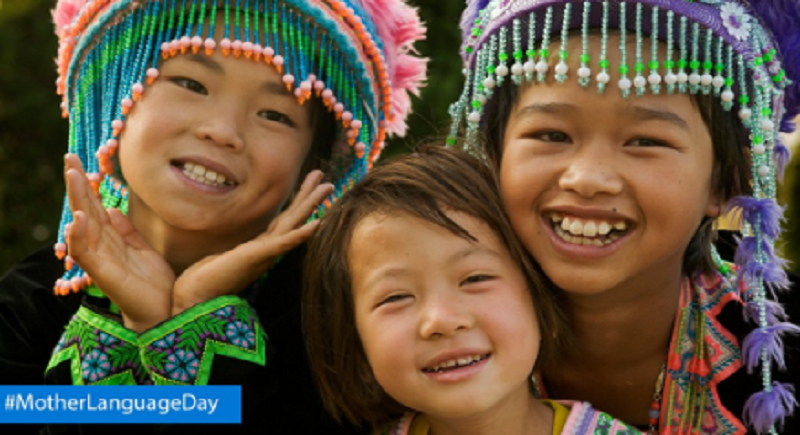Cultural and linguistic diversity are key for sustainable societies: International Mother Language Day
New Delhi, February 21: Since 2019 is the International Year of Indigenous Languages, the theme of this year's International Mother Language Day will be indigenous languages as a factor in development, peace and reconciliation“Indigenous peoples have always expressed their desire for education in their own languages, as set out in the United Nations Declaration on the Rights of Indigenous Peoples. Since 2019 is the International Year of Indigenous Languages, the theme of this year’s International Mother Language Day will be indigenous languages as a factor in development, peace and reconciliation.
Indigenous peoples number some 370 million and their languages account for the majority of the approximately 7,000 living languages on Earth. Many indigenous peoples continue to suffer from marginalization, discrimination and extreme poverty and are the victims of human-rights violations. On this International Mother Language Day, I thus invite all UNESCO Member States, our partners and education stakeholders to recognize and enforce the rights of indigenous peoples."
— Audrey Azoulay, Director-General of UNESCO, on the occasion of International Mother Language Day
Vice President M Venkaiah Naidu urges people of a country to speak in their mother languages in order to enrich different languages
As part of Prime Minister Narendra Modi's Digital India initiative, digitized content will be made available in the country's 22 scheduled languages and extended to India's other 234 recognized languages. Digitization began in June 2016 through the Bharatavani Project at the Central Institute of Indian Languages in Mysore, and by February 2017 content in 60 Indian languages had been made available free of charge.
The state government in India showed their bonding with mother language
On International Mother Language Day, celebrated every year on 21 February, UNESCO reiterates its commitment to linguistic diversity and invites its Member States to celebrate the day in as many languages as possible as a reminder that linguistic diversity and multilingualism are essential for sustainable development.
Linguistic diversity is increasingly threatened as more and more languages disappear. One language disappears on average every two weeks, taking with it an entire cultural and intellectual heritage.
UNESCO has been celebrating International Mother Language Day for nearly 20 years with the aim of preserving linguistic diversity and promoting mother tongue-based multilingual education.
21st February was declared to be the International Mother Language Day by UNESCO in 1999. It has been observed throughout the world since February 21st, 2000. The declaration came up in tribute to the Language Movement done by the Bangladeshis.
International Mother Language Day (IMLD) is a worldwide annual observance held on 21 February to promote awareness of linguistic and cultural diversity and promote multilingualism. First announced by UNESCO on 17 November 1999, it was formally recognized by the United Nations General Assembly in a resolution establishing 2008 as the International Year of Languages.
